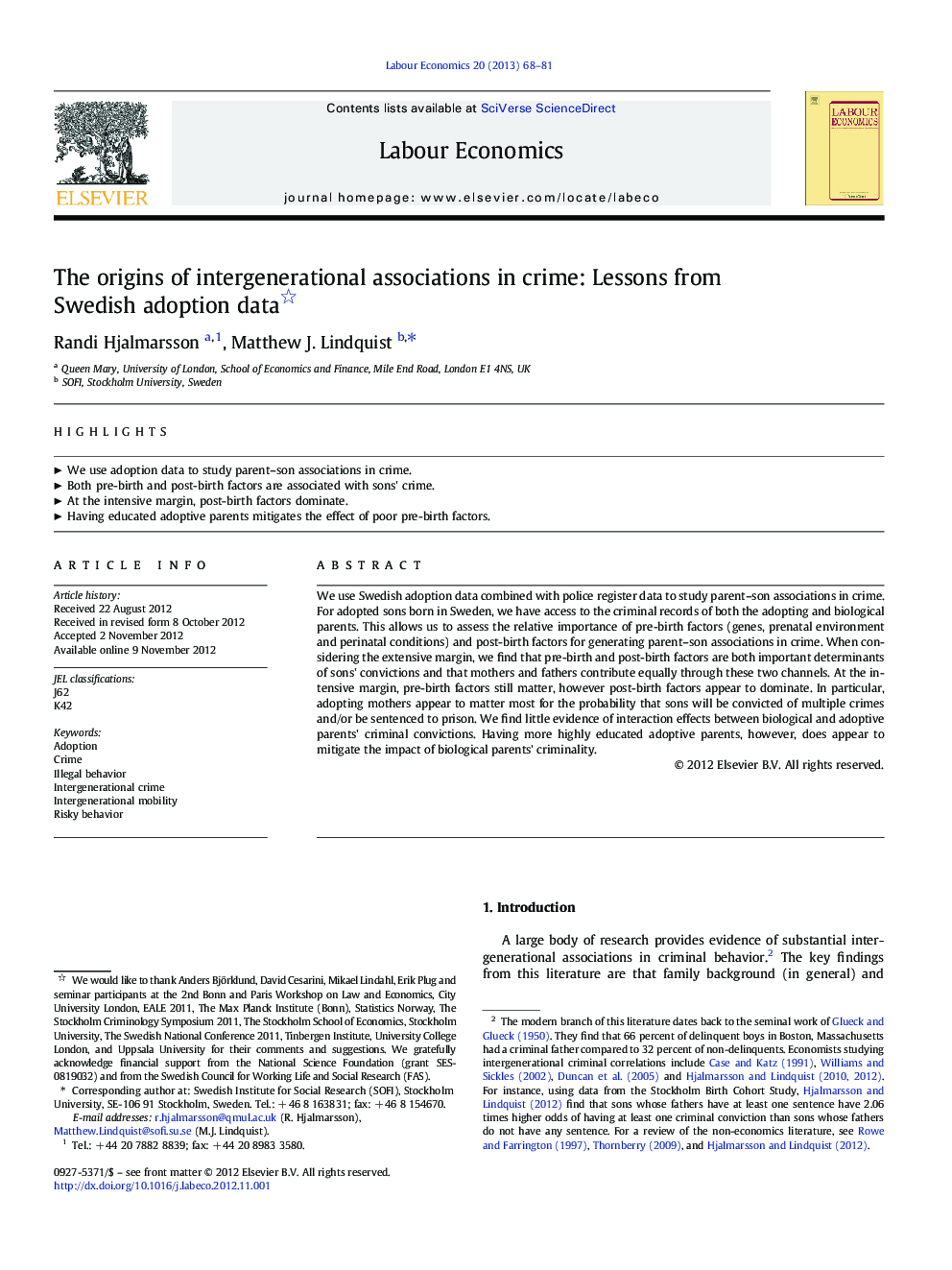| Article ID | Journal | Published Year | Pages | File Type |
|---|---|---|---|---|
| 971513 | Labour Economics | 2013 | 14 Pages |
We use Swedish adoption data combined with police register data to study parent–son associations in crime. For adopted sons born in Sweden, we have access to the criminal records of both the adopting and biological parents. This allows us to assess the relative importance of pre-birth factors (genes, prenatal environment and perinatal conditions) and post-birth factors for generating parent–son associations in crime. When considering the extensive margin, we find that pre-birth and post-birth factors are both important determinants of sons' convictions and that mothers and fathers contribute equally through these two channels. At the intensive margin, pre-birth factors still matter, however post-birth factors appear to dominate. In particular, adopting mothers appear to matter most for the probability that sons will be convicted of multiple crimes and/or be sentenced to prison. We find little evidence of interaction effects between biological and adoptive parents' criminal convictions. Having more highly educated adoptive parents, however, does appear to mitigate the impact of biological parents' criminality.
► We use adoption data to study parent–son associations in crime. ► Both pre-birth and post-birth factors are associated with sons' crime. ► At the intensive margin, post-birth factors dominate. ► Having educated adoptive parents mitigates the effect of poor pre-birth factors.
